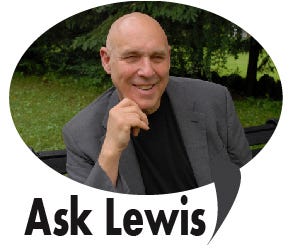What is Authentic and Real Happiness?
The best tips for having a meaningful life.
“These newsletters serve a demographic of highly intelligent readers, and deep thinkers with a passion for ideas, critical thinking, and unknown possibilities. The path to finding happiness are among those ideas. Readers of my posts are usually tired of being patronized elsewhere by fact-less, opinionated know-nothings, who complain about everything they don’t like, but lack a willingness to think about, find resources, or create life hacks, shortcuts, and solutions to fix what they don’t like.”
——————————————————————————————————————
On a personal note: Please excuse grammatical errors, typos, repetition, and any general nonsense, and such in this post. I am getting a bit older now, and I have about 20,000 pages of information that must get published before I leave the mortal coil. I simply write and publish more than my humble editors are able to correct. If you find enough errors you are welcome to contact me about being an editor of my work.
Thanks for sharing this newsletter with your friends and associates.
Join us at our free self-improvement for beginners Group ad Forum for free tips, tools, and strategies to become a happier person
https://www.facebook.com/groups/455029215769173
———————————————————
Q. Lewis, what exactly does it mean to be “happy?”
A. As I mention in many of my newsletters and in my courses, the word “happiness” refers to a feeling of pleasure, joy, or contentment. Usually, the term happiness is used in the context of mental or emotional states. It is also used in the context of life satisfaction, subjective well-being, flourishing, and well-being.
Since the 1960s, happiness research has been conducted in a wide variety of scientific disciplines, including gerontology, social psychology, positive psychology, clinical and medical research, and happiness economics.
'Happiness' is not just one thing, and is actually the subject of debate on usage and meaning, and on possible differences in understanding by culture.
The word is mostly used in relation to two factors:
the current experience of the feeling of emotion (affect) such as pleasure or joy, or of a more general sense of 'emotional condition as a whole. For our purposes here, happiness is what you experience here and now.
appraisal of life satisfaction, such as of the quality of life including overall appreciation of one's life as-a-whole.
Some usages can include both of these factors. For instance, subjective well-being includes measures of current experience (emotions, moods, and feelings) and of life satisfaction. At a most actualized level happiness is the experience of joy, contentment, or positive well-being, combined with a sense that one's life is good, meaningful, and worthwhile.”
Many researchers on happiness use the word Eudaimonia, to describe happiness. This is a Greek term variously translated as happiness, welfare, flourishing, and blessedness.
Though it is often said that “money cannot make you happy”, humans do have different wants, needs, and urges, and the ability to fulfill certain material wants and needs can be the difference between happiness and depression, though this may also vary from culture to culture. The differing uses of the word happiness can give different results. For instance, the correlation of income levels has been shown to be substantial with life satisfaction measures, but to be far weaker, at least above a certain threshold, with current experience measures. For instance, in Nordic countries, financial security is a strong element of whether people are happy or not, in South American countries there is a greater focus on current positive life experiences.
“Happiness is a direction, not a place.”
Sydney J. Harris
The Takeaway
All of this tells us that the implied meaning of the word happiness may vary depending on the context, and culture, often qualifying happiness as a non-specific and fuzzy concept.
———————————————————
Author: Lewis Harrison is a practical philosopher, an Independent Scholar, and a Results-Oriented Success Coach. He has a passion for knowledge, personal development, applied game theory, self-improvement, creativity, innovation, problem-solving, and story-telling. He is a practitioner of Transmoderm Zen. Lewis Harrison is also a speaker, best-selling author, and the creator of the Best Course to Happiness…at Last.
—————————————————
This newsletter is an excerpt from the Best Course to Happiness, at Last
Click on the Smiley face just below to learn more about the course …







